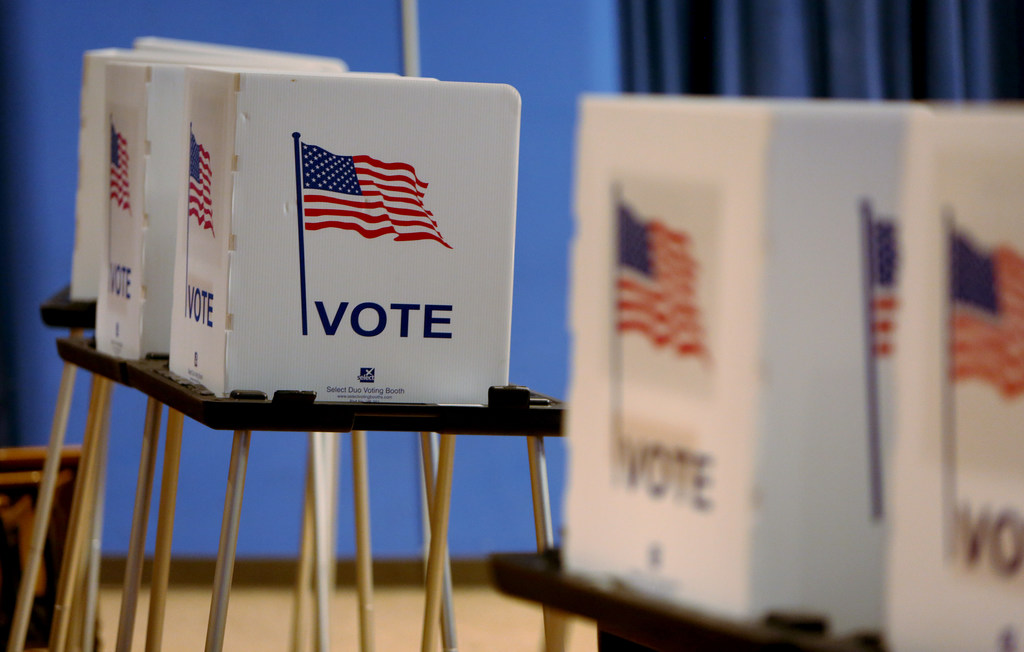Gov. Tony Evers is recommending a federal judge order Wisconsin to conduct the April 7 ballot largely by mail while moving back deadlines for voters to request absentee ballots, as well as for clerks to receive and process them.
The state DOJ, representing Evers, offered the proposal as a “middle ground” in several federal suits seeking changes to next week’s spring election. Assistant Attorney General Hannah Jurss argued the recommendations were meant to “save lives” amid the COVID-19 pandemic.
Jurss wrote in an amicus brief late yesterday Evers isn’t siding with either party in the combined suits. But instead, he’s offering suggestions “were this Court to order short-term changes to the election process under these extraordinary circumstances.”
The brief comes after Evers last week called on lawmakers to change state statutes to allow for every registered voter to be mailed an absentee ballot in the wake of the COVID-19 pandemic. Republican legislative leaders rejected that proposal, which Senate Majority Leader Scott Fitzgerald knocked as “complete fantasy” and “logistically impossible.”
>> WisPolitics is now on the State Affairs network. Get custom keyword notifications, bill tracking and all WisPolitics content. Get the app or access via desktop.
The state’s top election official later said local clerks would not be able to get the materials necessary to follow through on the guv’s proposal.
The Elections Commission also said yesterday nearly 60 percent of Wisconsin municipalities are short poll workers. And 111 jurisdictions say they don’t have enough staff for even one polling place.
In the brief, Jurss urged easing restrictions on returning absentee ballots and taking steps to make it easier to count the anticipated influx of ballots by mail. As of yesterday morning, local clerks had already received 972,232 requests for absentee ballots, according to the Elections Commission. That exceeds the 819,316 absentee ballots that were cast in the November 2016 presidential election.
The brief asks U.S. Judge Willam Conley to consider:
*Extending the April 2 deadline for registered voters to request an absentee ballot. A new deadline wasn’t offered in the brief.
*Issuing an order that would “relax” enforcement of the requirement for a witness signature on absentee ballots to make it easier to return them quickly and without person-to-person contact. State law requires another adult U.S. citizen to sign a mail-in absentee ballot attesting they witnessed the voter sign the ballot. But with state and federal guidelines calling for social distancing practices, Jurss argued it would be “problematic” to force voters into in-person interactions.
*A “short” extension to the deadline of 8 p.m. on Election Day for clerks to receive absentee ballots. The brief uses a one-week delay as an example to help facilitate an election primarily conducted via mail.
Members of the Wisconsin Elections Commission Elections yesterday rejected by a 4-2 margin a motion that would have asked Conley for a similar extension despite a majority of the panel backing the idea. The commission’s three Dems opposed a piece of the motion affirming the election should be held on April 7, while GOP Chair Knudson highlighted “ripple effects” that could interfere with the local and state canvass process.
*Ordering municipalities to set up “return drop boxes” to help avoid in-person contact, recommending the use of book return slots at local libraries, which are currently closed due to the pandemic. In a memo to clerks yesterday, the Elections Commission recommended such a move.
*Allowing clerks to open absentee ballots before 7 a.m. on Election Day and push back the deadline to count ballots to account for a potential extension for clerks to receive ballots by mail.
The brief urges in-person voting should still be allowed Tuesday — “or as soon as possible thereafter if the Court deems April 7 to be impossible” — for the few who were unable to vote absentee. That group of voters would include, for example, those who require assistive technology or are unable to read and write in English without help.
See the brief:
https://www.wispolitics.com/wp-content/uploads/2020/03/Evers-amicus-brief.pdf


